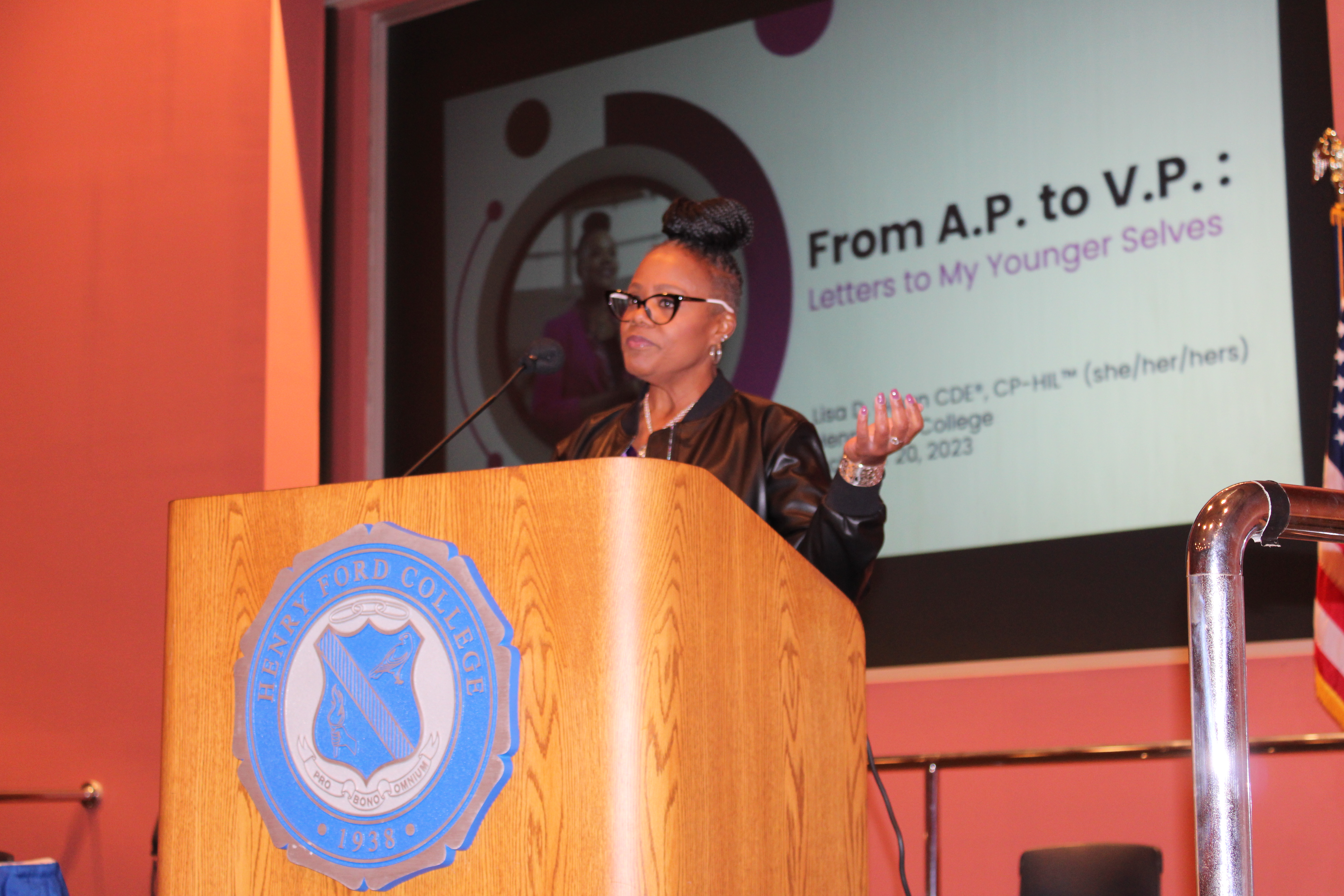A Celebration of Life and Community: The Excellence of the Black Woman Conference
Gallery

On Oct. 20, the third annual Excellence of the Black Woman Conference was hosted by the Black Male and QUEENS Focus Group (BMQFG). The Excellence of the Black Woman Conference promotes African culture and fosters a community of support and learning. The conference’s mission is to uplift the voices of black women and celebrate their collective excellence.
Over five hundred students, educators, and visitors attended different sessions throughout the day. Each session was given a unique name with African roots, such as “ujima,” “nia,” “kujichagulia,” and “sankofa.” Session presenters came from faraway destinations to share their own personal life experiences and words of advice with a diverse audience of listeners.
“Sankofa” is a Twi word of the Akan people of Ghana, meaning “to retrieve.” The word encourages us to collect valuable knowledge from the past in order to understand the present. Remembering our heritage helps us to move forward as we work to build a better future for our community. The power of community and tradition became the overarching theme of the conference.
Throughout the day, a sense of togetherness clung to the air. Attendees participated in the remembrance of African cultural values while taking advantage of a range of organizations and universities that came to visit.
The African tradition of requesting permission to speak from an elder had to be performed before the event could begin. In the Forfa Auditorium, attendees sat in silence before the presiding elders, Dr. Henry J. Bowers and Baba Calvin L. Harvell, could grant their permission. In many African cultures, elders are seen as keepers of wisdom, and they are given high status. Their words carry authority and their approval is vitally important. As soon as Baba Calvin L. Harvell gave an approving nod, the event marched on with stunning vivaciousness.
During the lunch break, a delicious assortment of traditional Black American comfort foods were served. Fried chicken, collard greens, and macaroni cheese were hot on the menu. Everyone was invited to indulge in the joy of community bonding, no matter their cultural background.
Sociology and psychology instructor Yolanda Brown-Spindell gave an inspiring speech about self-advocacy and agency. She emphasized the importance of embodying leadership by choosing who you want to be. Imposter syndrome, which is a phenomenon characterized by self-doubt and fear, should be avoided in order to reach success. “Setting goals and chasing your dreams with confidence,” she said, “are important for personal growth.” Moreover, she talked about recognizing your self-worth: “Where you start doesn’t have to be where you stop.” Her advice for the audience was similar to the idea of “kujichagulia,” which is a Swahili term for self-determination, pushing us to define our own identities and to speak up.
Keynote speaker Lisa D. Givan CDE, CP-HIL, recounted stories from her past through letters she wrote to her younger self. Her creative storytelling took the audience through different stages of her life, from being the youngest child in her family to being a working professional and mother. Today, she is the vice president of institutional diversity, equity and belonging at the Indiana Institute of Technology. She works to create inclusive spaces across various corporate, non-profit, and educational sectors. As a culture navigator, she hopes to bridge the gap between communities on an institutional level. In her line of work, she has successfully implemented strategies to create environments where individuals can thrive. Through tales of loss and success, her story teaches that overcoming adversity is possible.
Activist and Henry Ford College alumnus, Byron Brooks, shared his story of triumph and social action in hopes of inspiring others to find their purpose in life. Born in prison and formerly homeless, he went on to attain a master’s degree in higher education and a master’s in social work. Brooks frequently engages in community efforts to distribute resources to those in need. Recently, he passed out meals, clothes, and other essentials to people experiencing homelessness. His empowering speech was reminiscent of the concepts of “ujima” and “nia.” “Ujima” is a principle built on collective work and responsibility. “Nia,” on the other hand, means purpose. Together, both ideas embrace the interdependent aspect of community.
Founder and chair of the BMQFG, Dr. Kalvin DaRonne Harvell, went on to explain why the Excellence of the Black Woman Conference is significant. “Malcolm X said the most disrespected person in America is the Black woman. The most unprotected person in America is the Black woman. The most neglected person in America is the Black woman. Sixty years later, who else can say, ‘we’re having an excellence of the black woman conference’?”
